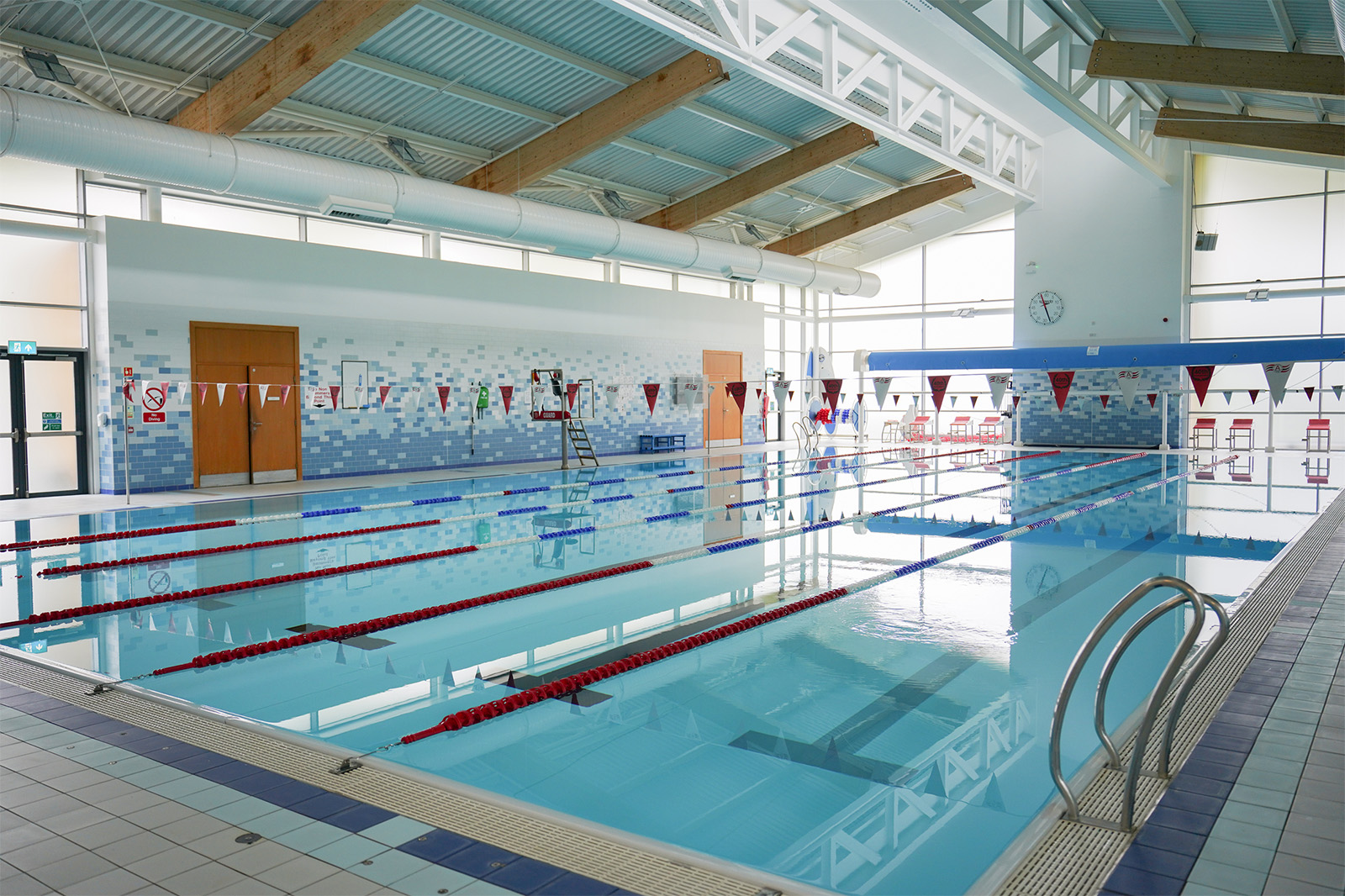We are incredibly proud to announce that the International School Aberdeen’s Elementary Veg Growing Club has been featured in the latest edition of ‘Future Gardeners’, a newsletter from the world-renowned no-dig gardening expert, Charles Dowding.
The article, which shines a spotlight on our fantastic student-led initiative, was contributed by our very own Grade 1 teacher, Jory Bolton. It details how the club empowers our young learners with hands-on skills, a sense of responsibility, and a connection to the wider community. It is a tremendous honour to have the hard work of our students and the dedication of our staff recognised by such a leading figure in the gardening world.
For those interested in following this inspiring initiative, you can sign up for the Future Gardeners Forum monthly newsletter at the following link: https://www.charlesdowding.co.uk/future-gardeners and follow Charles Dowding on Facebook & Instagram.
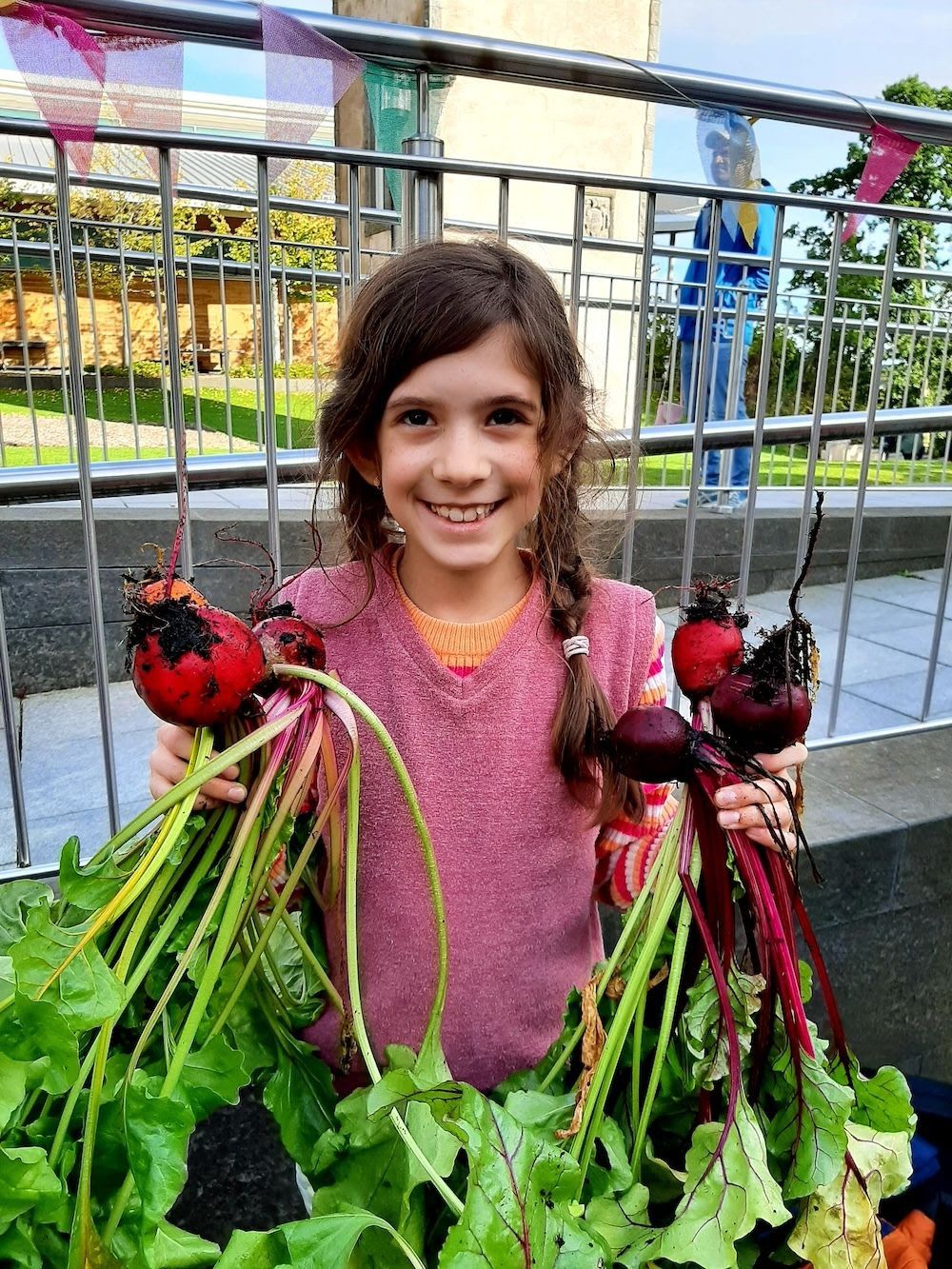
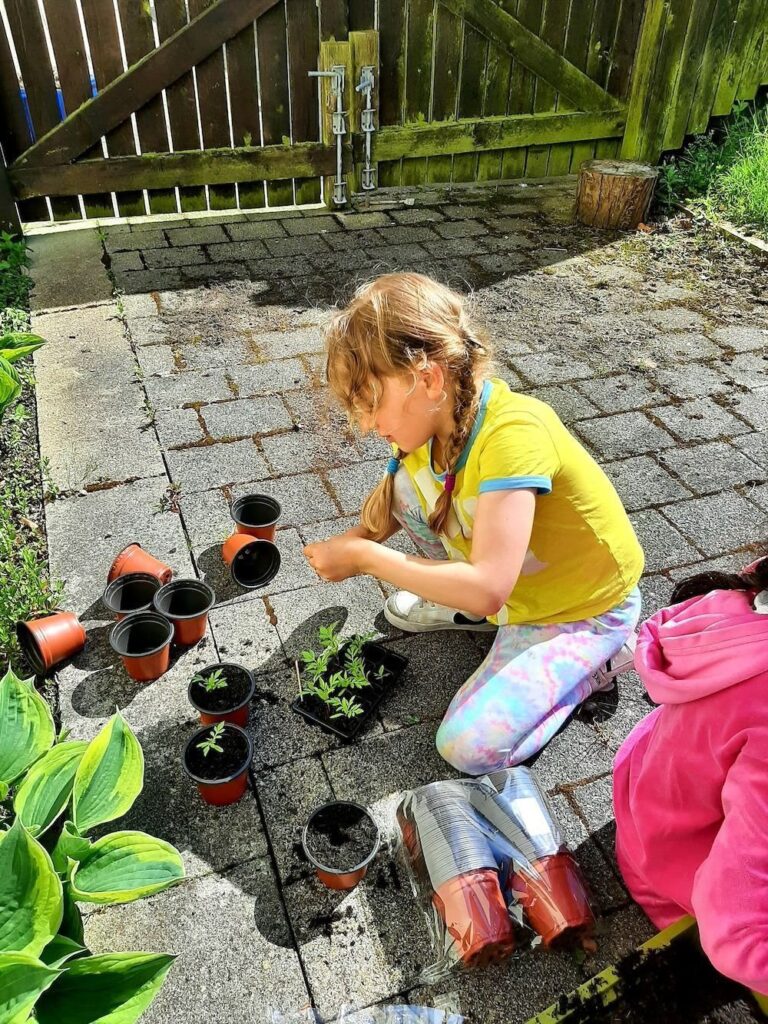
We are delighted to share Ms Bolton’s full contribution below.
Veg Growing at the International School Aberdeen
My name is Jory Bolton. I am a self-taught gardener who enjoys growing a variety of vegetables, fruits, and flowers. I love experimenting with homegrown produce, and have become quite skilled at making jams, condiments and pickles as a way to preserve my harvests. I have been living in the northeast of Scotland since 2019, where I teach Grade 1 at the International School Aberdeen (ISA).
As Scotland’s first international school, ISA is a unique educational setting. We are an inclusive and diverse school with a strong vision of Internationalism. We recognise that a different kind of education, one that is student-centred and allows students to take charge of their learning, is the best preparation to thrive in a complex and fast-changing world. Offering a broader perspective and approach to learning develops thinkers, problem-solvers, risk-takers, global citizens and life-long learners, alongside compassion, empathy and understanding.
Inspired by my school’s approach, the aspirations of some of our youngest students, and my school’s outdoor learning spaces, I created ISA’s Veg Growing Club in Spring 2024. Our first term consisted of 11 students in Grades 1 & 2. In the 2024-25 academic year, we expanded to 20 students in Grades 1-3; we aim to increase this to include students in Grades 1-4 during the 2025-26 academic year.
Our club is an inclusive club which takes a holistic approach to gardening. Children not only develop gardening skills, they also develop social-emotional skills as activities integrate skills such as: cooperation, collaboration, problem-solving, risk-taking, self-regulation, and mindfulness. This helps to improve students’ social interactions and develop their confidence in taking on leadership roles within their learning experiences.
The majority of what we grow is grown from seed by the children. They are responsible for keeping module trays watered, planting out seedlings, monitoring for pests, keeping raised beds weeded and watered, etc. Children are responsible for determining their roles and working as a team to get jobs done. Children also collect seeds from the flowers they grow, which they store in homemade origami envelopes. They love sharing these seed packets with friends!
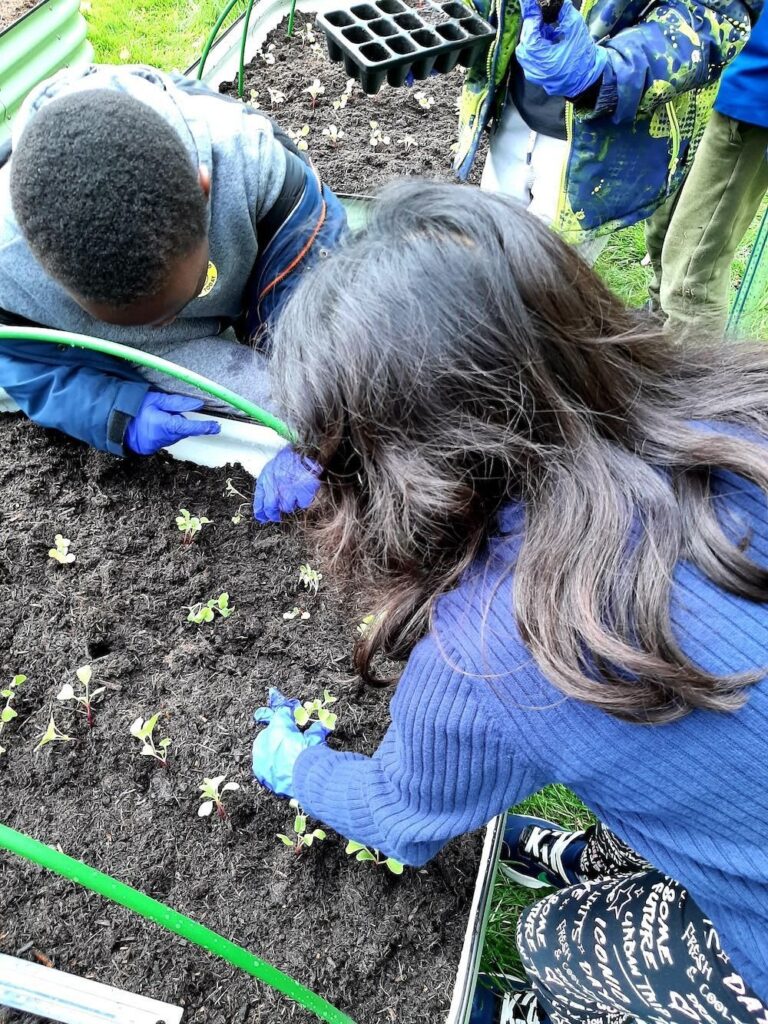
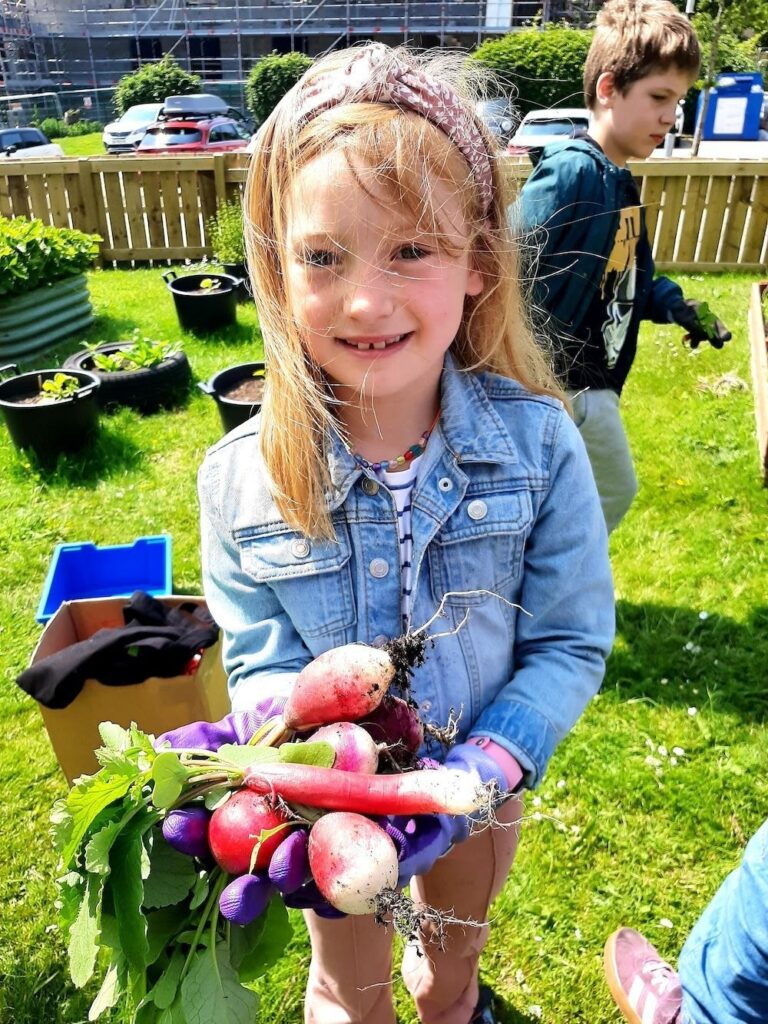
A component of Veg Club is recognising that we are part of a wider community; making what we grow accessible to others is important. We host two annual plant sales where our school community can come to buy our produce. This is a highlight for the children; they get very excited as the sales showcase their hard work! Profits from our spring sale are used to sustain club costs, whereas profits from our autumn sale are donated to a charity chosen by the children. The children also donate seedlings to a local allotment community and they donate produce that ripens over the summer holiday to an organisation that runs market stalls in Aberdeen’s parks.
Running a school veg club is a rewarding experience. If you’re looking to start a club at your school, here are some tips to help you:
-
- Student voice is key: When students have a voice and see their goals put into action, it inspires them and increases their overall engagement/enjoyment. Our veg plot is now home to a water butt and blueberry bushes because students suggested them and carried out their plan!
- Use project-based learning: Club activities are more meaningful if there is a larger goal over a longer period of time for students to achieve. For example, students wanted a wildlife corner in the veg plot. Over the course of multiple weeks, they used collaborative problem-solving to decide how best to achieve their goal by creating an action plan, designing the layout, determining what they wanted to include, and seeing their plan through. Their veg plot now includes: a bug hotel, bee baths, a bird feeder and bath, and a plethora of bee-friendly plants.
- Mix perennials and annuals: Incorporating perennial plants means you will have less of a seed sowing burden each year. It is also wonderful to see how excited the children get when the perennial plants begin poking through the soil in spring! I also recommend planting flowers like nasturtium and calendula as they are reliable self-seeders!
- Get others involved: Having a network of people like parents and older students helps with supervision, summer watering, organising plant sales, etc. It also means expanding your club and growing spaces goes more smoothly as you have helping hands!
- Integrate the curriculum: Academic concepts are more relevant and easier to contextualise when they are applied to real-world settings. You’ll be amazed by how easy it is to connect Mathematics, Language Arts, Science, the Arts, etc. into your veg club.
- Have fun: Enjoy the experience as much as your students do…and be sure to learn alongside them on your veg growing journey!

